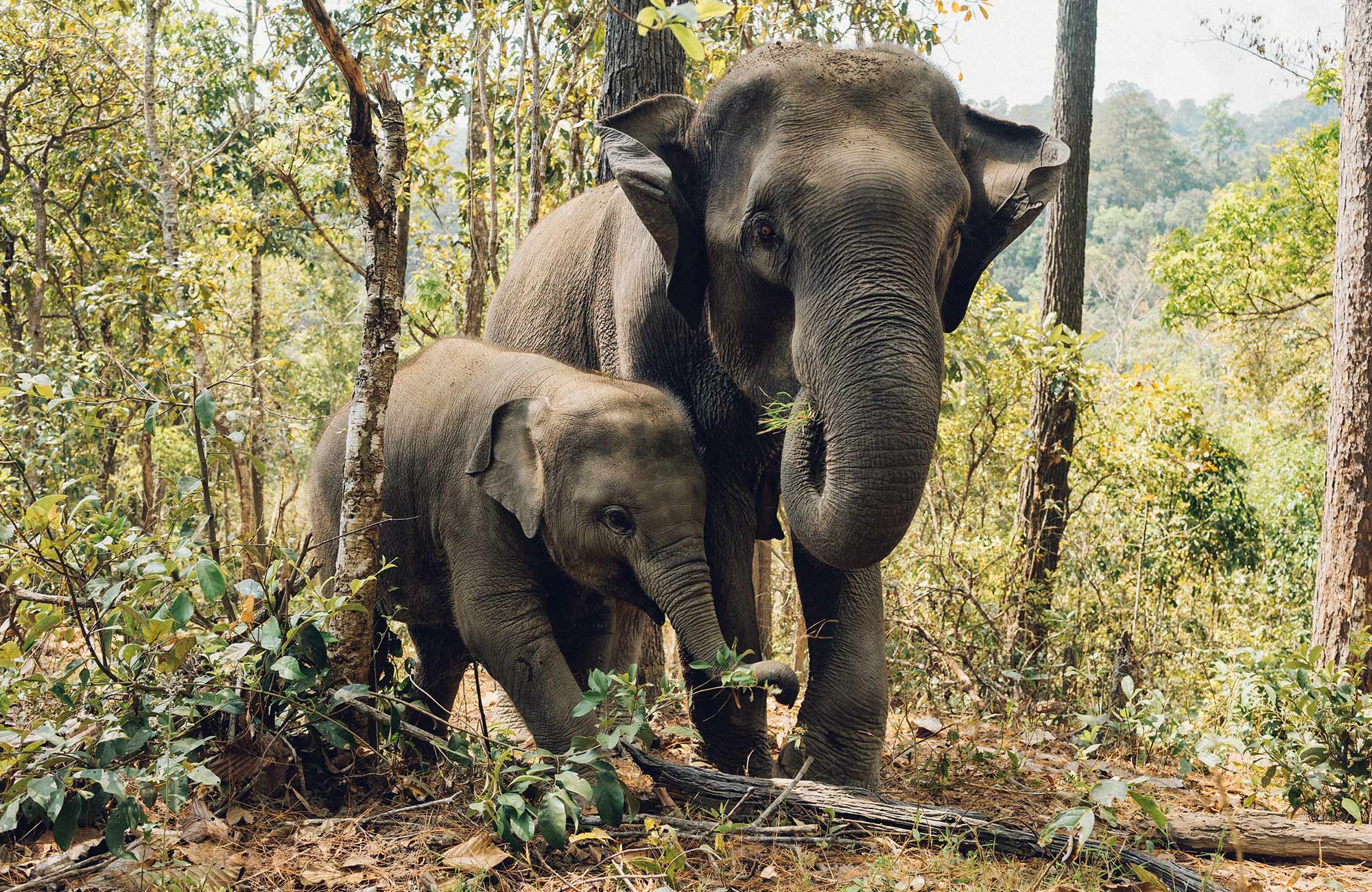Een mooie manier om meer te leren over de lokale fauna is door vrijwilligerswerk met dieren te doen in het buitenland. In de meest adembenemende omgevingen en krijg de kans om te zorgen voor wilde dieren te zorgen en research te doen. Dat kan in Europa, Azië, Zuid- en Midden-Amerika en Afrika. Werk met katachtigen, olifanten, pinguïns, haaien, schildpadden en andere wilde dieren. Sta oog in oog met wildlife en maak een verschil met jouw vrijwilligerswerk. Weet je niet welk vrijwilligersproject het beste bij jou past?
Meer weten? Mail ons
Help dieren en bedreigde diersoorten
Neem deel aan één van onze vrijwilligersprojecten met dieren en draag je steentje bij aan de bescherming van bedreigde diersoorten. Het is hard werken, maar daar krijg je een onvergetelijke ervaring voor terug. Onze vrijwilligersprojecten met dieren kun je doen op verschillende bestemmingen ter wereld. Reis bijvoorbeeld naar Afrika of werk met olifanten in Thailand. Genoeg opties om in het buitenland vrijwilligerswerk te doen met dieren.
Vind jouw vrijwilligerswerkproject met dieren via KILROY
Onze natuurbeschermingsprojecten zijn gericht op het leveren van een essentiële bijdrage aan bedreigde diersoorten. Door je bij ons aan te sluiten, krijg je de kans om hands-on ervaring op te doen en een kijkje achter de schermen te nemen terwijl je meewerkt aan de bescherming van enkele van 's werelds meest waardevolle wilde dieren. Voor ons staat ethische behandeling van dieren centraal; we voelen ons er ongemakkelijk bij om reizigers naar projecten te sturen die we niet volledig ondersteunen. Daarom hebben we onze natuurbeschermingsprojecten zorgvuldig geselecteerd en zijn we samenwerkingen aangegaan met enkele van de meest toegewijde mensen die je ooit zult ontmoeten. Zo kun je er zeker van zijn dat jouw inspanningen een werkelijk verschil zullen maken.
Wij zijn van mening dat alle dieren recht zouden moeten hebben op een gelijke kans in het leven. Door vrijwilligerswerk bij ons te doen, draag je bij aan deze overtuiging. Je kunt je voor een periode van 1-6 weken inzetten en verschillende dieren helpen, waaronder olifanten, Afrikaanse grote katten, schildpadden, pinguïns en orang-oetans. Als alternatief kun je betrokken zijn bij de verzorging van huisdieren in minder welvarende wijken, waar de meeste mensen de kosten van een dierenarts niet kunnen dragen. Ongeacht je vaardigheden, hebben we een project dat kan profiteren van jouw expertise.
Onze favoriete vrijwilligerswerkprojecten in het buitenland met dieren
We hebben een boel te kiezen, zodat er altijd iets is wat bij je past. Hier alvast een paar van onze favorieten op een rij:
- Thailand: Elephant Refuge & Wildlife Rescue Center
- Zuid-Afrika: Wild Cat Centre - Kimberley
- Filipijnen: Marine Conservation and diving
- Bali: Turtle Project
- Namibië: Wildlife Rescue
- Costa Rica: Animal Rescue Center
- Sri Lanka: Turle Conservation Project
- Portugal: Wolf Conservation
- Borneo: Orangutan Project
Wat anderen van vrijwilligerswerk met dieren vonden
Maud (26): “Het is nog steeds moeilijk te geloven dat ik naast olifanten heb gestaan, ze gevoerd en gewassen heb. Het was echt super bijzonder!”
Anneroos (21): "Het werken op de animal sanctuary in Zuid-Afrika is leuk en niet te zwaar. Zo hebben we op één dag, na hard werken, een nachtje in de openlucht gekampeerd. Ervaringen die ik voor geen goud had willen missen!"
Sanne (24): "Er is zoveel dat het werken bij het Wild Cat Centre zo geweldig maakte. Ik noem er een paar: de unieke ervaring om zo dicht bij wilde dieren te komen, de hechte groep vrijwilligers die je na enkele dagen al als vrienden beschouwt en niet te vergeten de liefde en passie van de familie die het project runt."
Vragen? Mail ons





